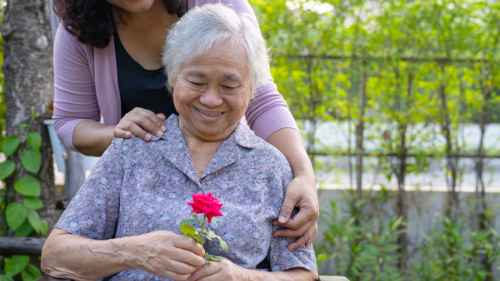Grandparents Need to Speak—and Be Heard—Too
In many families, grandparents are the pillars: caregivers, advisors,
protectors. But few people stop to ask how they’re really doing. It’s often
assumed they’re fine—that they’ve “lived enough,” that they don’t need to talk
because they’re “wise” or “strong.”
But grandparents feel fear, sadness, frustration, loneliness too.
They need to be heard, just like anyone else.
Growing older doesn’t mean no longer needing emotional support.
The silence imposed by the role
Many grandparents have learned to stay quiet. Not to share their worries so
they don’t “burden” their children. Not to show sadness so they don’t appear
weak. To stay in the background, feeling like they no longer play an active
role. But inside, they may be dealing with grief, frustration, feelings of
uselessness, or even anxiety.
The problem is, when no one listens actively, many of their emotions go
unseen. And that invisibility not only isolates them—it can worsen symptoms of
anxiety, depression, and psychosomatic illness.
Behind a polite smile or a casual “I’m fine,” there may be so much more.
Listening is an act of love and dignity
Listening to an older adult isn’t just a respectful gesture—it’s an
emotional necessity. We all need to feel that our story matters, that our
emotions have space, that what we’re experiencing has value. Grandparents are
no exception.
Having someone to talk to, to open up with, to share thoughts and feelings
without fear of judgment, can make a profound difference in their quality of
life. Therapy is for them too. It’s a space where they can be the protagonists
of their story, where they can speak freely—and reconnect with their sense of
worth.
If you have a grandparent or older loved one, ask them real questions.
Listen with presence. Validate their feelings.
And if you are the one who needs that space to speak, remember:
You are not alone. Your story deserves to be heard. Your voice still
matters.



